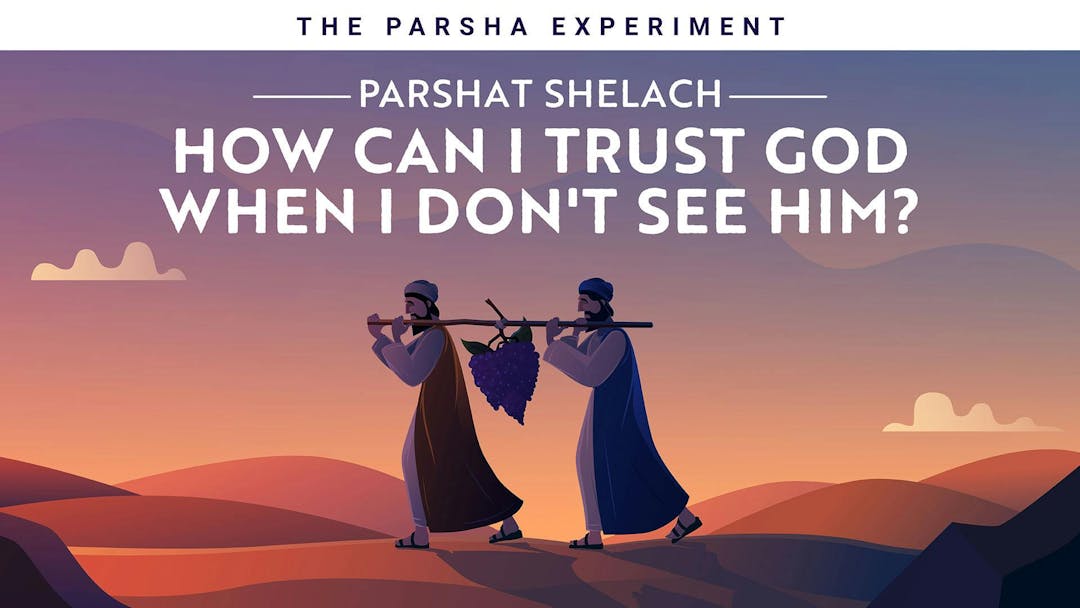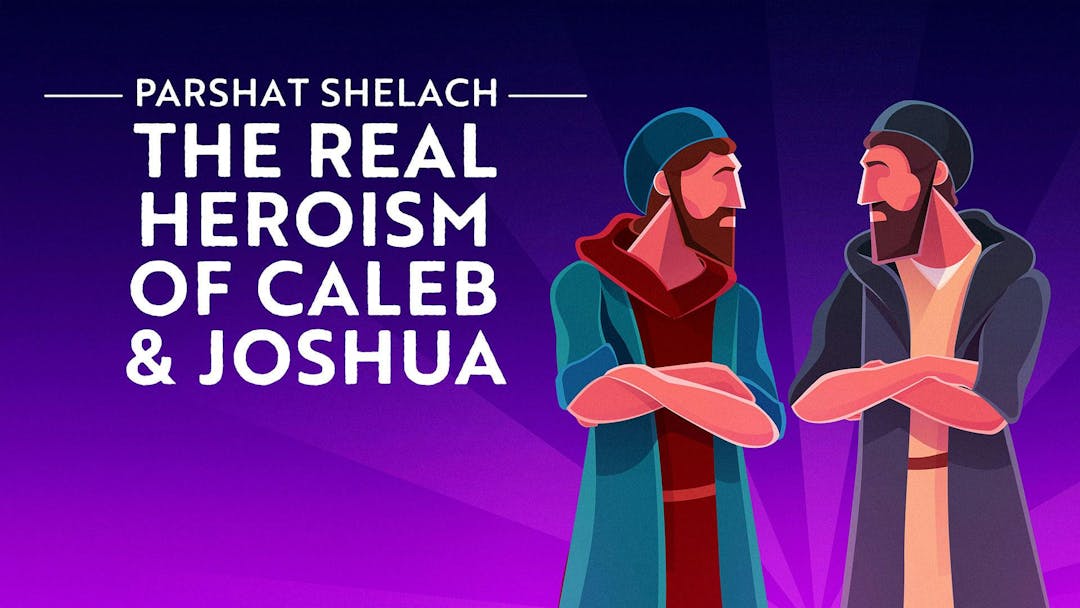Start your free trial today to unlock the full library and enjoy unlimited and uninterrupted access.
Get StartedHow Can We Relate To Such A Vengeful God?
Why God Made The Israelites Wander The Desert For 40 Years
In this week's parsha, we see the ultimate undoing of the people of Israel – the sin of the spies. When spies are sent to the land of Israel to scout the land, they come back with a negative report, and the people despair, leading to God's wrath, and the death of the entire generation over the course of the next 40 years. What was so bad about the sin, and more importantly, how can we connect to such an angry, vengeful God?
To check out Rabbi Fohrman's past Exodus course which is referenced here, see: What Does It Mean To Be God's Chosen People
Want to watch the full video for free?
Enter your email and we’ll send you a link to watch the full series free.
What is Aleph Beta?
Aleph Beta is a unique kind of Torah library. Led by our founder, Rabbi David Fohrman, we are dedicated to high-level, textual Torah learning for adults that is intellectually and spiritually sophisticated, that enlivens your Jewish practice and helps you forge a deeper connection to God. Whether you’ve been learning in yeshiva for years or you’re just beginning your Torah journey, you’re sure to find something meaningful and surprising waiting for you here.
Browse our library of over 1,000 beautifully produced animated videos, podcasts, deep dive courses, and printable guides. Topics include the weekly parsha, Jewish holidays & fast days, laws & mitzvot, prayers, relationships, big philosophical ideas and more. Have something to say at the Shabbos table that will amaze your family and guests and bring deep meaning into their lives.











